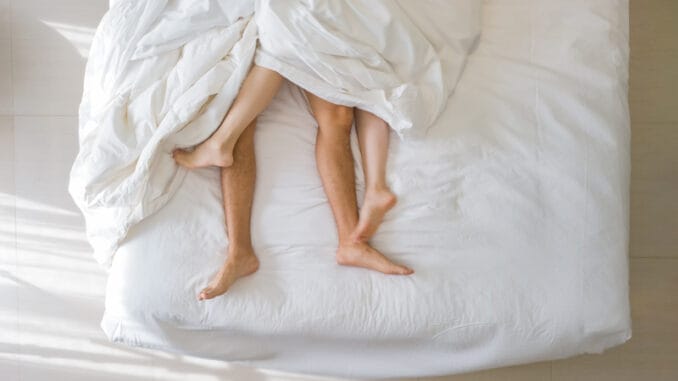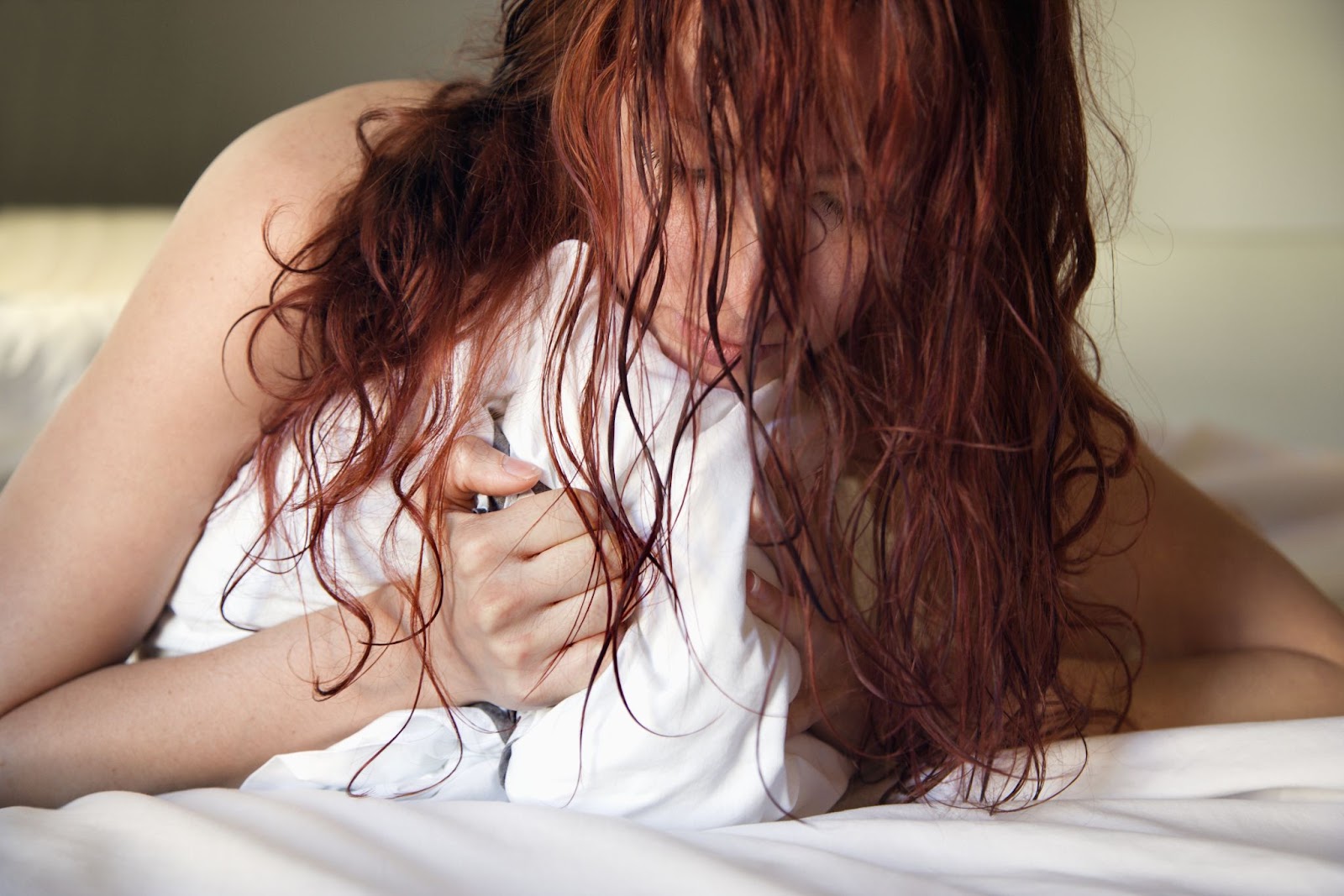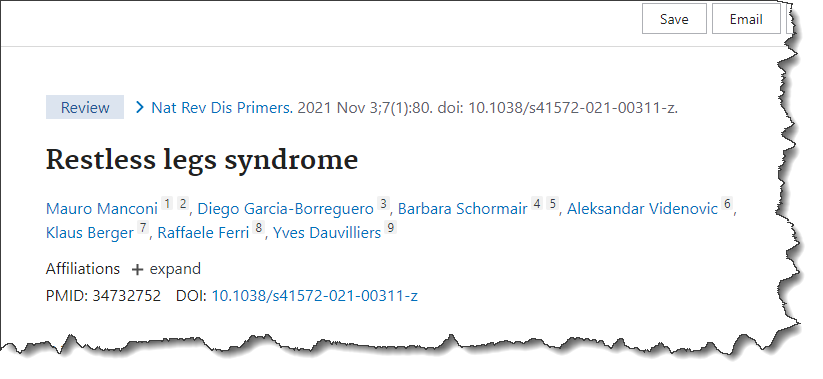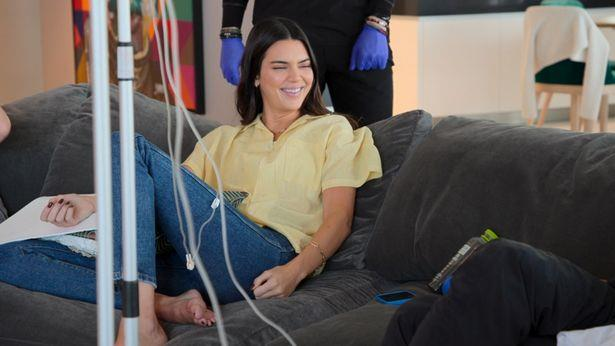
They’re using this one unusual technique…
Unsubscribe | Report as spam | Change email preferences
—-Important Message—-
How thousands of men are having intercourse every day now

Amazingly, this works for almost any man, whether he’s had erections problems or not.
In fact, I started using this method myself when I was going through bad erections problems…I had nothing but a flat tire down there…
…and yet…this method still was allowing me to have great intercourse with my wife.
It is working unbelievably well, and it will make your wife or girlfriend feel really good.
Here’s the 5 min video showing you this method me and 48,000 other men are now using
———-
Harmless leg bounce or something worse?
Restless legs syndrome can create real problems with sleep.
And if you have problems with sleep, then you are far more likely to have other health problems.
If you’ve ever experienced this then you know that when you have RLS…
…you typically experience the irresistible urge to move your legs in response to uncomfortable sensations.
This most often happens when you are trying to rest or fall asleep.
Restless legs syndrome (RLS), also called Willis-Ekbom Disease, causes unpleasant or uncomfortable sensations in the legs and an irresistible urge to move them. Symptoms commonly occur in the late afternoon or evening hours, and are often most severe at night when a person is resting, such as sitting or lying in bed.
What most people (and their doctors) don’t know is that restless leg syndrome can be caused by specific types of treatments.
If you have RLS or know someone who does, this article could shed a lot of light on what’s actually going on.

One of the treatments that causes restless leg syndrome, and therefore disrupts sleep, is, ironically…
The ingredient that’s put in almost all “PM” types of treatments.
These are the treatments that are supposed to HELP you sleep.
There are a lot of these on the market, but two of the most popular are Tylenol PM and Advil PM.
Antidepressants can also cause this problem…
Which is also ironic because if you don’t get enough sleep it dramatically increases your risk of depression.
Certain ‘treatments’ that may aggravate RLS symptoms, such as antinausea ‘treatments’ (e.g. prochlorperazine or metoclopramide), antipsychotic ‘treatments’ (e.g., haloperidol or phenothiazine derivatives), antidepressants that increase serotonin (e.g., fluoxetine or sertraline), and some cold and allergy ‘treatments’ that contain older antihistamines (e.g., diphenhydramine)
The big problem with this is that if you have restless leg syndrome…
Your doctor and/or pharmacist may never put two and two together…
And figure out that the treatment that you are taking is causing the problem – especially if they’re over the counter treatments!
That means that if you do have restless leg syndrome…
You will want to take a careful look at the treatments that you’re taking and make sure that none of them are on the list in red above…
Because they could be aggravating the problem.
If you do find that you’re on treatments that are making your RLS worse…
Then you should work with your doctor to see if you can safely get off of them or if there are other alternatives.
Never quit antidepressants cold turkey!
Another significant problem with RLS is that it is often not even recognized by doctors and you just compound the problems!
RLS is poorly recognized by physicians and it is accordingly often incorrectly diagnosed and managed.
Because restless leg syndrome often occurs with other health problems…
One of the best things you can potentially do for yourself to get rid of RLS, other than get off of treatments that can cause it…
…is to take care of your overall health.
RLS occurs alone or with comorbidities, for example, iron deficiency and kidney disease, but also with cardiovascular diseases, diabetes mellitus and neurological, rheumatological and respiratory disorders.
We’re human and our bodies sometimes get sick and get diseases, but you have a lot more control over your health than you may think.
It’s always worth paying attention to your health, because a healthy life tends to be a much happier life!
—-Important Message About Adding Decades to Your Life—-
Here’s why celebrities keep injecting NAD+ into their blood

NAD+ (nicotinamide adenine dinucleotide) is an enzyme that is found in every cell in the body.
It serves two main functions – to turn nutrients into energy…
And to help raise metabolic rate, which scientists say is the key to staying young and healthy for decades longer.
So NAD+ is a magical little enzyme that helps prevent aging.
And lately, celebrities have been rushing to get NAD+ infusions like it’s the true fountain of youth.
But I’ve found something that works even better…
And it doesn’t need to be injected, so you don’t have to go to the hospital or pay for expensive appointments.
It’s called CID5920 — and it’s an overlooked supplement that helps the body naturally produce more NAD+.
It’s a safer, cheaper alternative than injecting NAD+…
And I’ve been using it every day to add decades to my life.
Check it out here — CID5920 for men
———-

